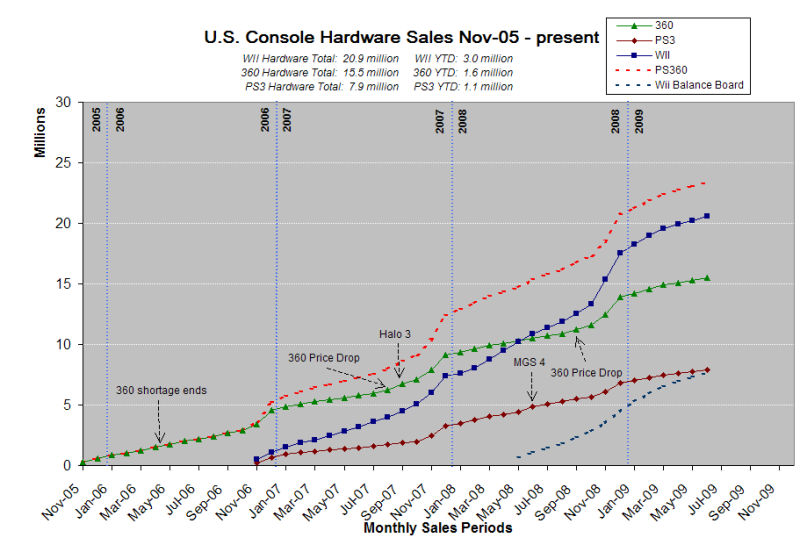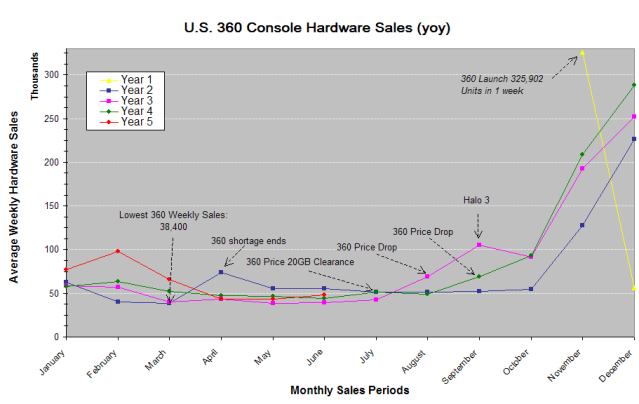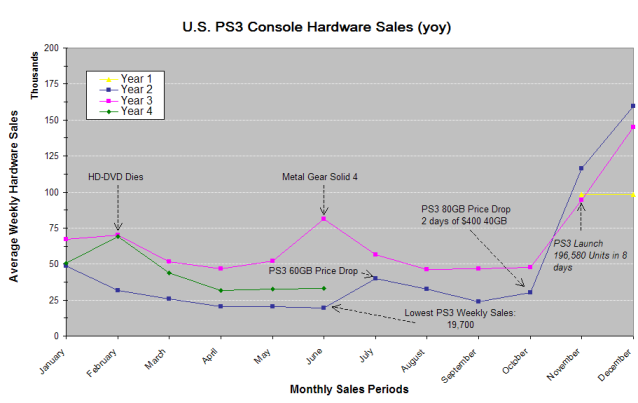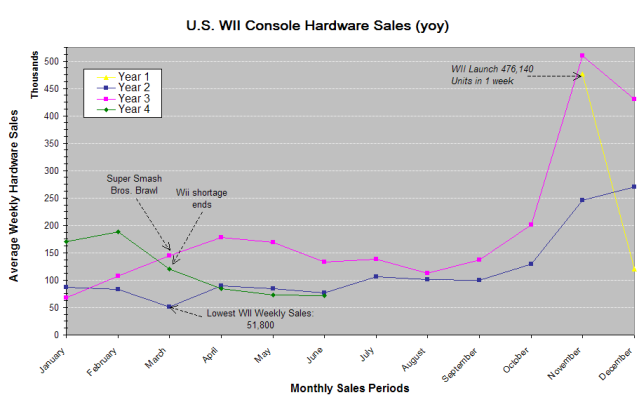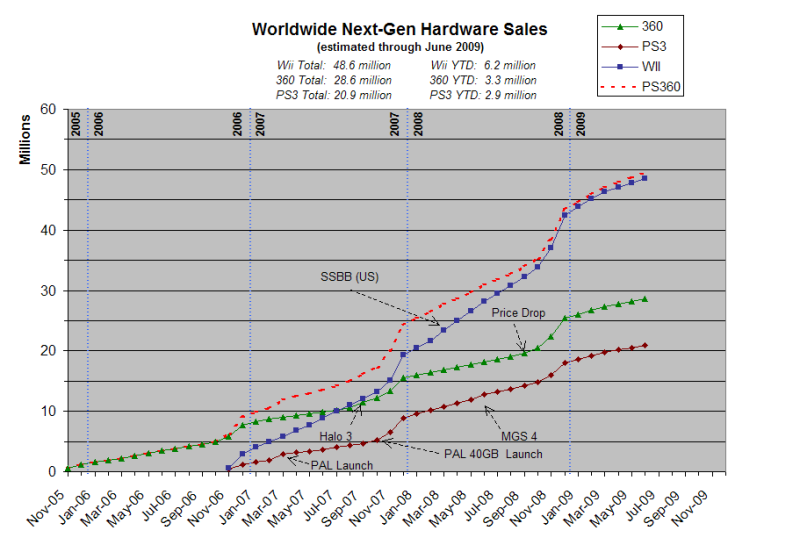charlequin said:
Let me put it this way: I don't think most of the already-huge franchises were actually significantly in play* this generation, but I do think the option to create brand new AAA-budgeted franchises (or expand B-list franchises to the A-list) existed, and that franchises like this actually have as much influence on a generation as the big stuff from the time before. Or, in other words: I don't think Nintendo could ever have gotten GTA4 given their platform strategy, but I think the possibility of getting something like a (lesser) version of GTA3's impact last generation was there.
Yeah - I can't really argue with much of this, except maybe the brand new AAA-budgeted franchise. If a publisher is going to sink that kind of top-dollar budget into a new franchise, then it will want to do so with a AAA-development studio. And I don't think Nintendo had any shot whatsoever of getting publishers to commit a few of their AAA-studios to exclusive Wii projects.
Trying to expand some B-list franchises into A-list properties would have been a more realistic approach. But again, they would have been doing this with B-level development studios, which makes it less likely that an AAA-level game would be the result of such an effort.
But yeah - I see what you are trying to get at.
charlequin said:
In the best case, I think Nintendo could've locked up some smaller genres even as sandbox and shooter games continued to flourish on PS360, and you'd see people picking a system more based on what kind of games they liked (more like the SNES/Genny days.)
Somewhat surprisingly, Nintendo
has established a number of genres on the Wii (which is somewhat surprising because they were coming off of the Gamecube which really only excelled in one thing - Nintendo games).
Without going into 'list warz' - the Wii is pretty firmly established in a number of genres. Platformers, light-gun games, mini-games, party games, kart racers, children's software, casual games, puzzle games, point 'n' click adventures, some sporting events such as golf, tennis, skiing, olympics-type stuff, dancing games, female-centric games, exercise games, etc.
And it is competitive in the console space in other areas such as music games, JRPGs, horror games, etc.
All-in-all, an absolutely giant step up from the Gamecube.
Could things have turned out better - yeah. But there were limits. As you said yourself, the Wii never had a chance at the FPS and sandbox genres. Also, the Wii never had a shot at many of the sporting genres (football, soccer, sim racing, etc.) based off of how strong they were on the XBox and PS2 last gen. WRPGs were going where stuff like Elder Scrolls, KOTOR, Fable, found success the previous gen.
Maybe Nintendo could have made some improvements in the JRPG genre as you said. Maybe they could have done better in the fighting genre. Undoubtedly a few others. Strategy games would seem like a good fit for the Wii, but that is still mostly a PC-centric genre.
Yeah - there are definitely areas where Nintendo could have handled 3rd-party efforts better. But coming off the abysmal failure that was the Gamecube, I don't think the potential upside would have been all that much higher without the 3rd-parties themselves taking an active role in making the Wii their platform of choice for some of their top franchises. And 3rd-parties have shown quite clearly that they had absolutely no interest in doing that.
Flying_Phoenix said:
Prime examples of this strategy:
Lost Planet
Dead Rising
Saints Row
Except that you posted this in response to charlequin's comment, where he stated that Nintendo didn't really have a chance at capturing the shooter or sandbox markets - and yet you list all shooter or sandbox titles for your examples?
Stuff like Red Steel, Carnival Games, Raving Rabbids all sold in the same ballpark (or even quite a bit higher in the latter two cases) as the examples you listed.
You kind of buttressed my point. Yeah, the 360 was able to get a number of quality new IPs in the shooter and sandbox genres. Coming off the Gamecube, Nintendo wasn't going to be able to compete in those areas.

